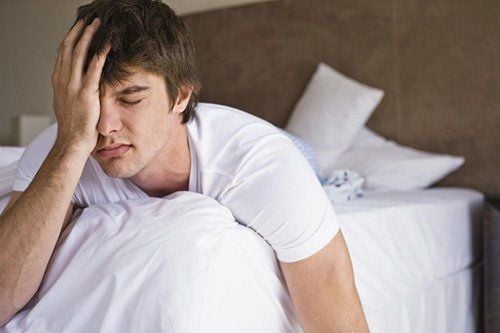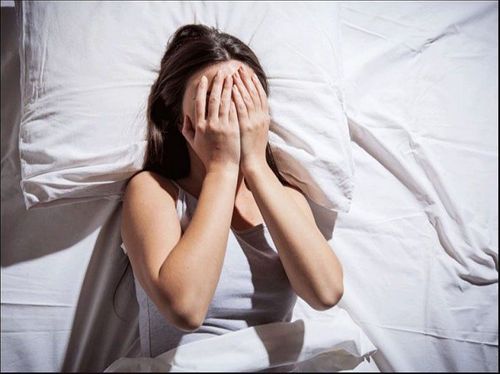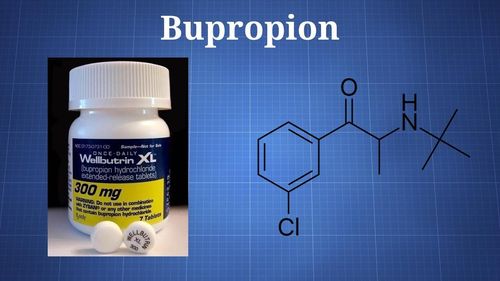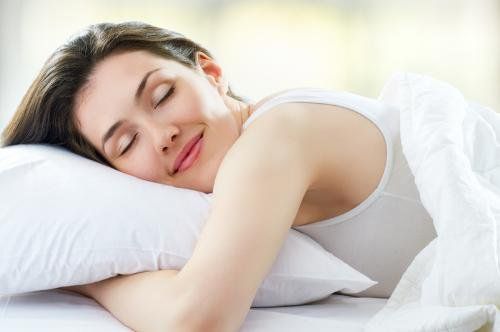This is an automatically translated article.
Sleep and mental health are closely linked. Lack of sleep will seriously affect your psychological state and mental health. In contrast, people with mental health problems are more likely to have insomnia or other sleep disorders.
1. The relationship between sleep and mental health
Sleep and mental health are closely linked. Lack of sleep affects your psychological state and mental health. And people with mental health problems are more likely to have insomnia or other sleep disorders.
People with mental illness are even more likely to yawn or toss during the day. Chronic sleep problems affect 50% to 80% of patients in a typical psychiatric practice, compared with 10% to 18% of adults in the general US population. Sleep problems are especially common in patients with anxiety, depression, bipolar disorder, and attention deficit hyperactivity disorder (ADHD).
Traditionally, clinicians treating patients with psychosis treat insomnia and other sleep disorders as symptoms. But studies in both adults and children show that sleep problems can increase the risk, and even directly contribute to the development of some mental disorders. This study has clinical implications, as treating a sleep disorder may also help alleviate symptoms of a co-occurring mental health problem.
The brain basis of the mutual relationship between sleep and mental health is still not fully understood. But neuroimaging and neurochemical studies show that a good night's sleep enhances both mental and emotional resilience, while chronic sleep deprivation sets the stage for negative thinking. extreme and emotionally vulnerable. Thus, one concludes about the link between sleep and mental health as follows:
Sleep problems are more likely to affect patients with mental disorders than those in the general population . Sleep problems can increase the risk of developing specific mental illnesses, as well as as a result of such disorders. Treating a sleep disorder can help ease symptoms of a mental health problem. SEE ALSO: Protecting the heart from sleep

Đau đầu vì mất ngủ là một yếu tố tàn phá não bộ, làm suy giảm khả năng điều chỉnh cảm xúc
2. How sleep affects mental health
Every 90 minutes, a normal sleeper will cycle between the two main types of sleep, although the time spent in one or the other sleeps changes as sleep progresses. In "quiet" sleep, a person progresses through four stages of increasingly deep sleep. Body temperature drops, muscles relax, heart rate and breathing slow down. The deepest stages of restful sleep produce physiological changes that enhance the functioning of the immune system.
Another type of sleep, REM (rapid eye movement) sleep is the stage in which people dream. Vital signs such as breathing rate, body temperature, blood pressure, and heart rate rise above normal limits when people are awake. Studies report that REM sleep enhances learning and memory, and contributes to emotional health in complex ways.
Although, scientists are still trying to eliminate all the mechanisms, they have found that disrupted sleep affects levels of neurotransmitters and stress hormones, among other things such as wreaking havoc on the brain, impairing the ability to regulate emotions and thoughts. In this way, insomnia can amplify the effects of mental disorders and vice versa.
MORE: How does sleep affect your heart health?
3. Psychological effects of lack of sleep
More than 70 types of sleep disorders exist. The most common problems are insomnia (difficulty falling asleep or staying asleep), obstructive sleep apnea (a breathing disorder that causes multiple awakenings), various motor syndromes (feeling difficult tossiness at night) and narcolepsy (excessive sleepiness or sudden daytime sleepiness).
The type of sleep disorder, prevalence, and impact vary by psychiatric diagnosis. But the overlap between sleep disorders and various psychiatric problems is so great that researchers have long suspected both types of problems may have a common biological origin.
3.1 Sadness
Studies using different methods and populations estimate that 65% to 90% of adult patients have major depression and about 90% of children with this disorder have some sleep problems. Most depressed patients have insomnia, but about one-fifth have obstructive sleep apnea.
Insomnia and other sleep problems also increase the risk of developing depression. A longitudinal study of about 1,000 adults between the ages of 21 and 30 enrolled in a Michigan wellness organization found that, compared with normal sleepers, in a 1989 interview Patients with a history of insomnia had a 4-fold increased risk of developing major depression at the same time 3 years later. And two longitudinal studies in young people - one involving 300 pairs of young twins and another including 1,014 adolescents. The results showed that sleep problems developed before major depression.
Insomnia and other sleep problems affect depression patient outcomes. Studies report that depressed patients who continue to have insomnia are less likely to respond to treatment than those without sleep problems. Even patients whose mood was improved by antidepressant therapy were at greater risk of developing depression later in life. Depressed patients with insomnia or other sleep disturbances are more likely to think about suicide and die by suicide than depressed patients who can sleep normally.

Mất ngủ gây đau đầu và nhiều vấn đề sức khỏe khác
3.2 Bipolar disorder
Studies in different populations report that 69% to 99% of patients experience insomnia or report less need for sleep during the manic phase of bipolar disorder. However, in bipolar disorder, studies report that 23% to 78% of patients sleep excessively (insomnia hypers), while others may experience insomnia or restless sleep.Longitudinal studies show that insomnia and other sleep problems are worse before a manic or bipolar depressive episode and that sleep deprivation can cause mania. Sleep problems also negatively affect mood and contribute to relapse.
MORE: How is your body when you sleep?
3.3 Anxiety disorders
Sleep problems affect more than 50% of adult patients with generalized anxiety disorder, are common in those with post-traumatic stress disorder (PTSD) and can occur in panic disorder fear, obsessive-compulsive disorder, and phobias. Sleep problems are also common in children and adolescents. A sleep laboratory study found that children with anxiety disorders took longer to fall asleep and slept less deeply, when compared to a group of healthy children.Insomnia can also be a risk factor for developing an anxiety disorder, but not as much as for major depression. For example, in the longitudinal study of adolescents mentioned earlier, sleep problems resulted in anxiety disorders 27%, while they suffered from depression 69%.
But insomnia can worsen symptoms of an anxiety disorder or prevent recovery. For example, sleep disruption in PTSD may contribute to retention of negative emotional memories and prevent patients from benefiting from fear-quenching therapies.
3.4 Attention Deficit Hyperactivity Disorder (ADHD)
Various sleep problems affect 25% to 50% of children with ADHD. Typical problems include difficulty falling asleep, shorter sleep duration, and restless sleep. The symptoms of attention deficit hyperactivity disorder and difficulty sleeping overlap and are difficult to distinguish. Sleep apnea affects 25% of children with ADHD, and restless legs syndrome or periodic limb movement disorder also affects sleep, affecting up to 36% together. And kids with this sleep disorder can become hyperactive, inattentive, and emotionally unstable, even if they don't meet the diagnostic criteria for attention deficit hyperactivity disorder.

Rối loạn tăng động giảm chú ý ảnh hưởng đến sức khỏe tinh thần
4. Lifestyle changes on sleep and mental health
In some respects, the recommended treatment for the most common sleep problem, insomnia, is the same for all patients, regardless of whether or not they have a mental disorder. The underlying principles are a combination of lifestyle changes, behavioral strategies, psychotherapy, and medication if needed.
Lifestyle changes: Most people know that caffeine contributes to insomnia, but so do alcohol and nicotine. Initially, alcohol depresses the nervous system, helping some people fall asleep, but this effect wears off within a few hours and people wake up. Nicotine is a stimulant, increasing heart rate and thinking. Giving up these substances is best, but avoiding them before bed is another option. Physical activity: Regular aerobic exercise helps people fall asleep faster, spend more time in deep sleep, and wake up less at night. Sleep hygiene: Many experts believe that people learn from insomnia and can learn to sleep better. Good "sleep hygiene" is a term often used to include tips such as maintaining a regular sleep and waking schedule, using the bedroom only for sleep or sex, and keeping the bedroom dark, not have distractions such as a computer or television. Some experts also recommend re-sleeping: stay awake longer to ensure better sleep. Relaxation techniques: Meditation, yoga, and deep breathing exercises, and continuous muscle relaxation (alternatively tensing and relaxing the muscles) can combat anxiety and racing thoughts. Cognitive behavioral therapy: Because people with insomnia tend to become preoccupied with not falling asleep, cognitive behavioral techniques help them change negative expectations and try to build more. belief that they can have a good night's sleep. These techniques can also help change the "blame game" that assumes every personal problem during the day is due to lack of sleep. In short, sleep and mental health are closely linked. Lack of sleep will seriously affect your psychological state and mental health. In contrast, people with mental health problems are more likely to have insomnia or other sleep disorders. Therefore, to have a good night's sleep, maintain a healthy lifestyle and a comfortable mind, as well as maintain a circadian rhythm and a stable sleep for a healthy mind.
Please dial HOTLINE for more information or register for an appointment HERE. Download MyVinmec app to make appointments faster and to manage your bookings easily.
Reference source: health.harvard.edu













